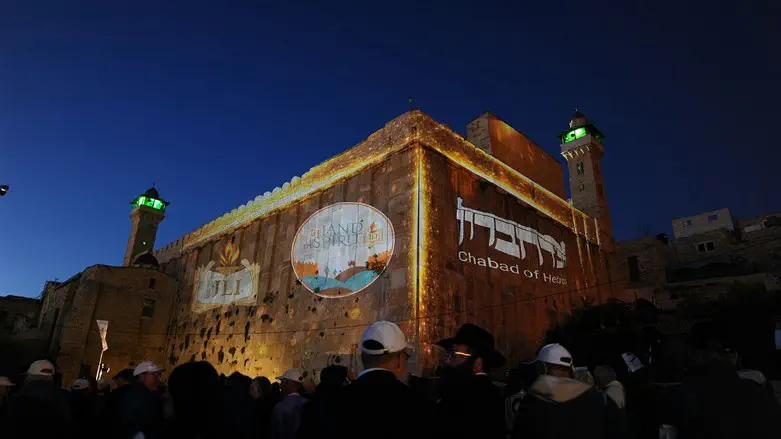
In this week's sedra, the Torah describes Yaakov's death in uncommon detail. We learn about the final guidance Yaakov provided his sons, the finishing touches Yaakov made to his children’s inheritance, and the efforts he expended to ensure that he would be buried in his chosen burial spot, Maarat Hamachpela.
The Torah specifies the royal treatment Yaakov's body underwent and the honor Yaakov's sons, the Egyptians, and the nations of Canaan exhibited in their mourning of Yaakov.
With the backdrop of the attention given to Yaakov's death, it's shocking to read Rabbi Yochanan's statement in the Gemara: יַעֲקֹב אָבִינוּ לֹא מֵת 'Yaakov our father did not die.'
Rashi explains Rabbi Yochanan's intention saying that Yaakov will live on forever.
The Baalei Tosfot support Rabbi Yochanan’s statement about Yaakov not dying by pointing out that the Torah’s description about the “end of Yaakov’s life” does not employ the verb “וימת - and he died.” In contradistinction, when describing our fathers Avraham and Yitzchak deaths, the Torah does use the וימת term.
But how could Rabbi Yochanan make such a statement?
Rav Nachman asks the obvious question: "If so, why had they eulogized him, embalmed him, and buried him?!"
Rav Shmuel Eidels, in his Chidushei Agados, suggests that the key to understanding Rabbi Yochanan’s statement is a teaching from Mesechet Ketuvot (111a): אָמַר רַבִּי אֶלְעָזָר מֵתִים שֶׁבְּחוּץ לָאָרֶץ אֵינָם חַיִּים שֶׁנֶּאֱמַר וְנָתַתִּי צְבִי בְּאֶרֶץ חַיִּים Rabbi Elazar said: The dead of outside of Eretz Yisrael are not alive, as it is stated: “And I will set glory in the land of the living” (Ezekiel 26:20).
This teaching indicates that those who die in the land of Israel are living; hence, those who die outside Israel are no longer living. In applying this teaching to the discrepancy in the Torah's text between Yaakov on the one side and Avraham and Yitzchak on the other, Rav Eidels explains that Avraham and Yitzchak who died in the land of Israel are considered living. We may have concluded that Yaakov's dying outside the land of Israel would indicate he is no longer living. That is why Rabbi Yochanan believes that the Torah didn’t mention “וימת - and he died” in reference to Yaakov. This is to emphasize that, though Yaakov dies in exile, he is living as he would have been if he had died in the land of Israel.
Though Rav Eidels' solution answers why the Torah would purposefully omit Yaakov's death, it requires us to redefine what “living” and “dying” mean in this context.
It is obvious from our practice that the Torah treats anyone dying in the land of Israel as physically dead. The deceased in Israel bequeath inheritances and their families mourn for their loss. So how are we to understand how those who die in Israel are alive? What unique "life" do they enjoy after they have passed?
Furthermore, what has a person done by simply dying in the land of Israel to merit this different fate? How does the location of a person's death impact the person?
It seems that the investment made by the individual to die in Israel is what makes all the difference. It is clear from the initial prophecies Hashem transmitted about the Jewish people that it is His will that the Jewish people be a sovereign society in the land of Israel. Obviously, no one Jew can achieve that prophecy on his or her own.
However, the minimum that an individual Jew can do is to live in the land of Israel.
When a Jew ensures that he/she lives in the land of Israel till their end, the person identifies with Hashem's vision of עם ישראל בארץ ישראל - The Jewish People in the Land of Israel. The aforementioned Gemara in Ketuvot explains that by taking this step, the individual immortalizes him/herself as being a building block in bringing about that divine vision.
But why didn't Yaakov choose to return and complete his life in the land of Israel? One may misconstrue his lack of allegiance to the vision of The Jewish People in The Land of Israel. This was not the case. Yaakov understood from the prophecy he received before descending to Egypt that Hashem's plan was for his body to be brought back to the Land of Israel by his children. The Torah omits the word וימת when describing Yaakov's death to indicate that Yaakov was also immortalized in his allegiance to Hashem's vision even without having completed his life in the land of Israel.
May we each have the good fortune to not simply achieve the individual feat of living in the land of Israel, but to also be an integral piece in Hashem’s grand vision of עם ישראל בארץ ישראל - The Jewish People in the Land of Israel.
This week's Dvar Torah is by Rabbi Dov Zemel, former Rosh Kollel in Atlanta (2002-2006), currently head of Lead Quality and Homeowner Relations at Networx.com. Comments: dov_zemel@yahoo.com
Torah MiTzion stands in the forefront of the battle for the future of the Jewish people in the Diaspora, offering religious-Zionist Torah scholarship to Jewish communities throughout the world and strengthening the bond between the Jewish people in the Diaspora and in Israel via the study of Torah.